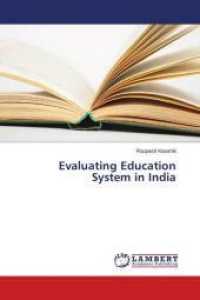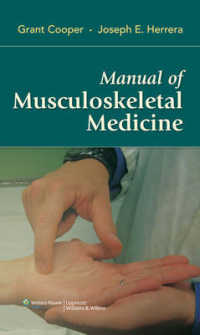- ホーム
- > 洋書
- > ドイツ書
- > Humanities, Arts & Music
- > Religion & Theology
- > christianity
Full Description
The fundamentals of every faith are exposed in their conceptualization of death. Recent studies have caricatured Post-Reformation Calvinist theology of death as cold and fatalistic. Jason D. Edwards examines the Reformed English Puritan John Flavel's (ca. 1627-1691) theology of death through close analysis of his writings on mortality, dying, and eternal destiny. The spine of his doctrine was covenant theology, or how he understood the terms and applications of divine covenants, though this aspect of his theology has been largely neglected. Inquiry into Flavel's treatment of death demonstrates how the Puritan minister emphasized union to Christ as Mediator as the only grounds for a believer's hope. Flavel applied his theology to the spiritual needs of those facing death and dying with warmth, clarity, and conviction to anchor all hope in death upon Christ.







